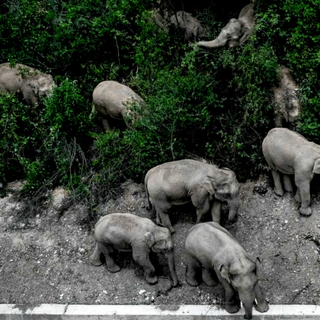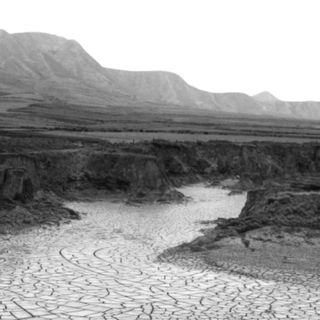An international group of lawyers has put forth a new definition of the term “ecocide” to describe the widespread damage to the environment by people. If adopted, this will make ecocide an international crime alongside genocide and crimes against humanity.
Activists and experts are deeming this a crucial push for preventing climate-related catastrophes and ensuring the security of the planet on a global scale. The “historic” definition released yesterday as part of a draft law notes: “unlawful or wanton acts committed with knowledge that there is a substantial likelihood of severe and widespread or long-term damage to the environment being caused by those acts.”
This will be presented to the International Criminal Court (ICC), which currently prosecutes four offenses: genocide, crimes against humanity, crimes of aggression, and war crimes. If the definition gains legal repute as the fifth crime prosecuted before the ICC, the international court can hold people — instead of entities — like government leaders, entrepreneurs, business tycoons accountable for ecological harms and associated loss of biodiversity.
This will further expand the discourse around ownership to and rights of nature, access to reparations for affected communities, and improved public understanding of the scope of the ecological crisis.
“None of the existing international criminal laws protect the environment as an end in itself, and that’s what the crime of ecocide does,” Philippe Sands, professor of international law at University College London and co-chair of the panel that drafted the definition, said at a press briefing.
Ecocide derives from Greek and Latin to mean “killing our home.” From industrial pollution, gas leaks, to micro plastics in oceans, the term includes any harm caused to the ecosystem. The initiative to hold people accountable for ecocide comes amid concerns of a worsening climate crisis.
Related on The Swaddle:
Eco‑Anxiety Is Fuelled by Helplessness, Anger. Can We Turn Our Grief Into Climate Action?
The quest to recognize ecocide has been long-drawn. While interpretations and broad definitions of ecocide have existed — the first one being proposed in the 1950s — the current legal framework is the “first time that something has been convened globally and in response to political demand,” Jojo Mehta told CNBC. In the past, Pope Francis, activist Greta Thunberg, and French President Emmanuel Macron have endorsed the criminalization of ecological damage.
The reception of the term itself is mixed among activists, experts, and academics. Some say the recognition of ecocide within ICC will do little to change harmful business practices. Further, since prosecution as an international crime will cause economic penalties, countries may not be in favor to ratify such a definition.
The ICC is yet to comment on the legal definition proposed by the experts. The process for adopting a new definition also involves various logistical steps, requiring amendment of existing statutes, among other steps.
“I think there are still huge political barriers because ecocide impacts powerful states, but I wouldn’t have predicted we would be where we are today,” Rachel Killean, senior lecturer in law at Queen’s University Belfast, told CNBC. “So potentially there’s enough of a groundswell around environmental issues for us to see it come through.”
For now, acknowledging the scope of ecocide and the calls to accountability functions as a pressure point of sorts — spotlighting the scale of the ecological crisis and urging people to engage with it.
Philippe Sands sums up the thrust of the initiative: “… it’s part of that broader process of changing public consciousness, recognizing that we are in a relationship with our environment, we are dependent for our wellbeing on the wellbeing of the environment, and that we have to use various instruments, political, diplomatic but also legal to achieve the protection of the environment.”




